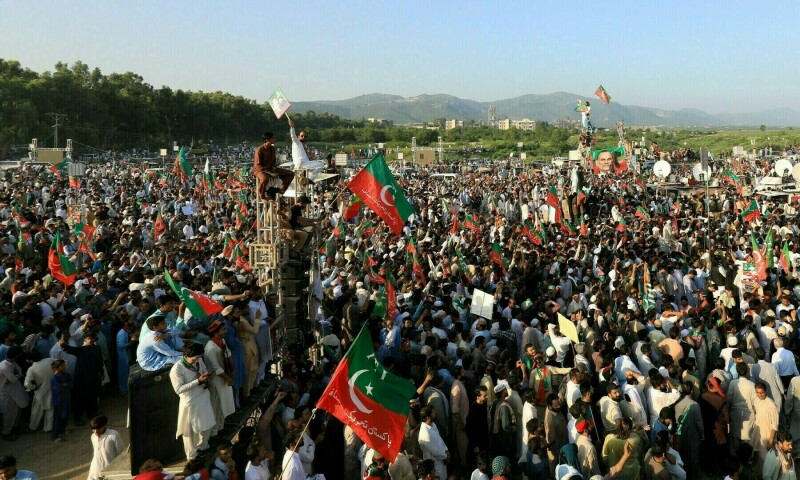FROM the scale of preparations, one wonders if the Islamabad Police is preparing for war.
According to recent news reports, thousands of security personnel, 1,200 containers, large quantities of anti-riot gear, thousands of rubber bullets and thousands of teargas guns and shells have been requisitioned by the capital’s police in anticipation of the protest announced for this Sunday by the PTI.
Reinforcements in the tens of thousands have also been requested from the FC, Rangers, Sindh and Punjab police, and the authorities have been told that millions of rupees will be required to feed and transport law-enforcement personnel while they are deployed in the city. At the same time, Section 144 has been extended for two more months in the city, and it appears from the security plans that Islamabad will once again be turned into what locals pejoratively describe as ‘Containeristan’. Is all of this really necessary? It must be asked.
The city administration may have intended to demonstrate strength by sharing the plans it has made, but instead, it looks like it is panicking. Large protests and sit-ins are part and parcel of Pakistan’s political process, and the PTI’s announcement of a march on Islamabad is nothing out of the ordinary if past precedents are considered.
It may be true that the party’s decision to frame this protest as a ‘do or die’ moment has raised the stakes, but if the predictions and analyses shared by TV commentators are to be believed, it seems that the security personnel requisitioned for the event will outnumber the protesters many times to one. Instead of broadcasting its preparedness for a ‘war’ with protesting citizens, perhaps Islamabad Police should direct its energies towards coming up with a plan on how their right to protest will be accommodated while respecting security concerns.
On its part, the PTI leadership needs to tone down the rhetoric and reconsider the pressure it is placing on its cadres to ensure turnout. Demanding that each lawmaker turn up with a prescribed number of supporters or forego their party ticket reflects a lack of confidence in the party’s position. Requiring its leaders to prove their ‘loyalty’ could also push some diehards to take more extreme measures to please their leaders. This could prove counterproductive.
The protesters should not be led to believe they are marching to ‘conquer’ Islamabad. The party is within its rights to organise and protest, but at the same time, it must demonstrate that it is conscious of its responsibility to ensure that its activities remain peaceful. As Nov 24 draws nearer, both the PTI and the Islamabad administration must remain wary of how their posturing will be interpreted and keep within the limits of reason and the law.
Published in Dawn, November 20th, 2024







